Here's when all 8 Ivy Leagues began admitting minorities — and how they're responding to the Supreme Court's affirmative action ruling
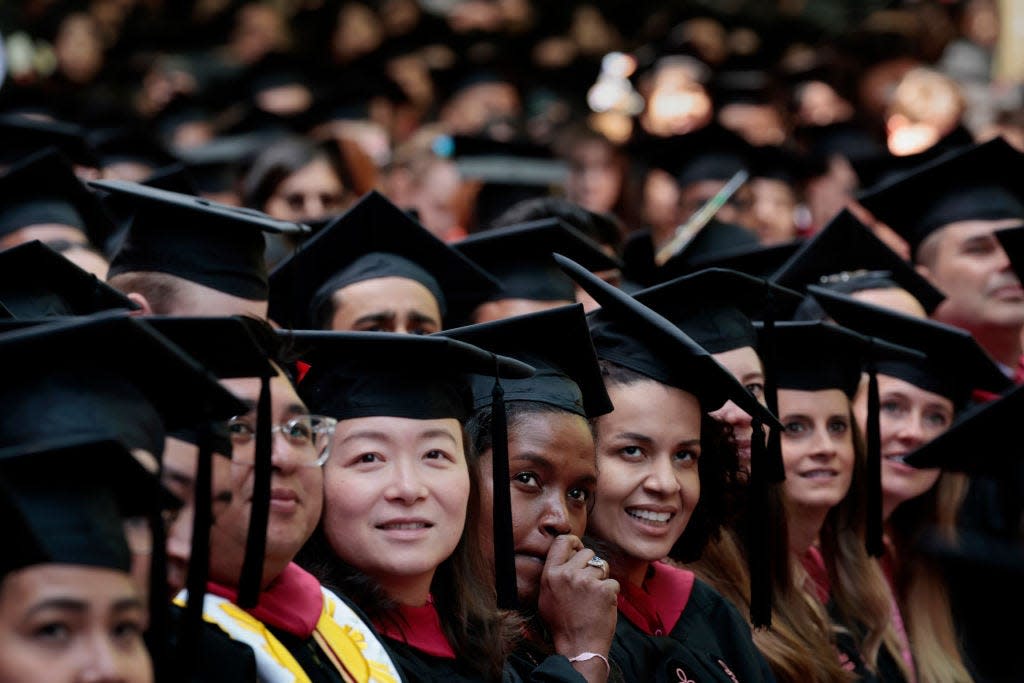
The Supreme Court ruled Thursday to end race-based affirmative action in college admissions.
Ivy League presidents called the ruling "disappointing" and "unwelcome."
Some Ivy League universities didn't admit women and Black students until the '60s, '70s, and '80s.
On Thursday, the Supreme Court ruled in two cases that considering race in the college admissions process was unconstitutional.
The rulings effectively ended affirmative action — a practice in which applicants from groups that have historically been the subject of discrimination, such as women and people of color, are given additional weight in order to increase opportunities for these groups and bolster diversity.
Minorities have long been underrepresented in Ivy League institutions. While some schools, such as Cornell, began admitting women and Black students in the late 1800s, others, like Columbia, didn't admit women until the 1980s.
Here's when all eight Ivy League universities opened their doors to people other than white men — and how they're responding to the Supreme Court's decision.
Dartmouth began admitting Black students in 1824. Women weren't allowed to enroll until 1972.
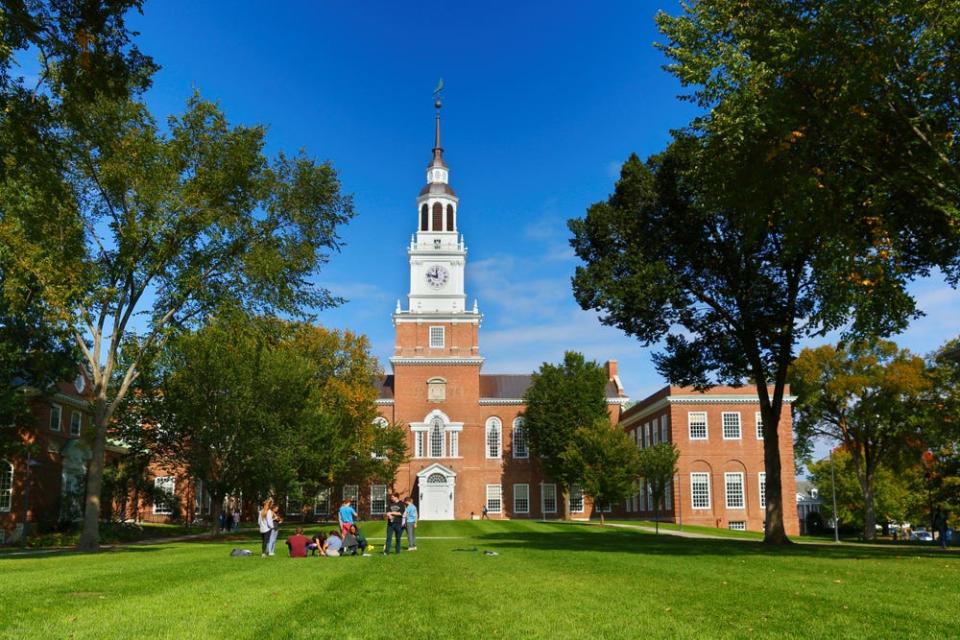
Dartmouth hired its first full-time affirmative action officer in 1975, according to Dartmouth's alumni magazine.
Following the Supreme Court's ruling on Thursday, Dartmouth's president, Sian Leah Beilock, released a statement regarding the decision.
"While there will be differences of opinion and robust discussion about the ruling itself, we begin the conversation from this common, foundational understanding that a diversity of lived experiences and perspectives enriches discovery and the Dartmouth education — it makes Dartmouth stronger," the statement said, in part. "As an institution with an imperfect history when it comes to embracing diversity, it is important that we not only state our values but that they inspire our actions."
Cornell admitted its first Black student in 1869, and began admitting women and students of color in 1870.
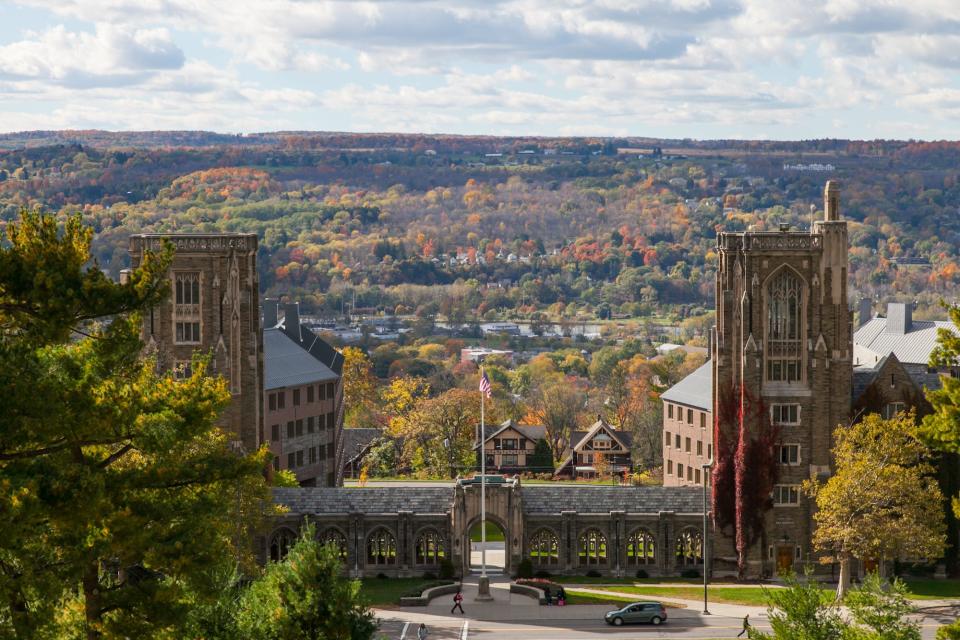
According to the Cornell Review, the university began implementing affirmative action in the 1970s, when the school became more selective.
Cornell's president, Martha Pollack, said in a statement that the university was "disappointed" by the Supreme Court's ruling.
"As always, Cornell will follow the law, but within its scope we will remain a welcoming community, with strong core values and an unwavering adherence to our historic founding principle: to be a university where 'any person can find instruction in any study,'" the statement read.
Harvard's first Black student graduated in 1870, and it combined admissions with its women's college, Radcliffe, in 1975.
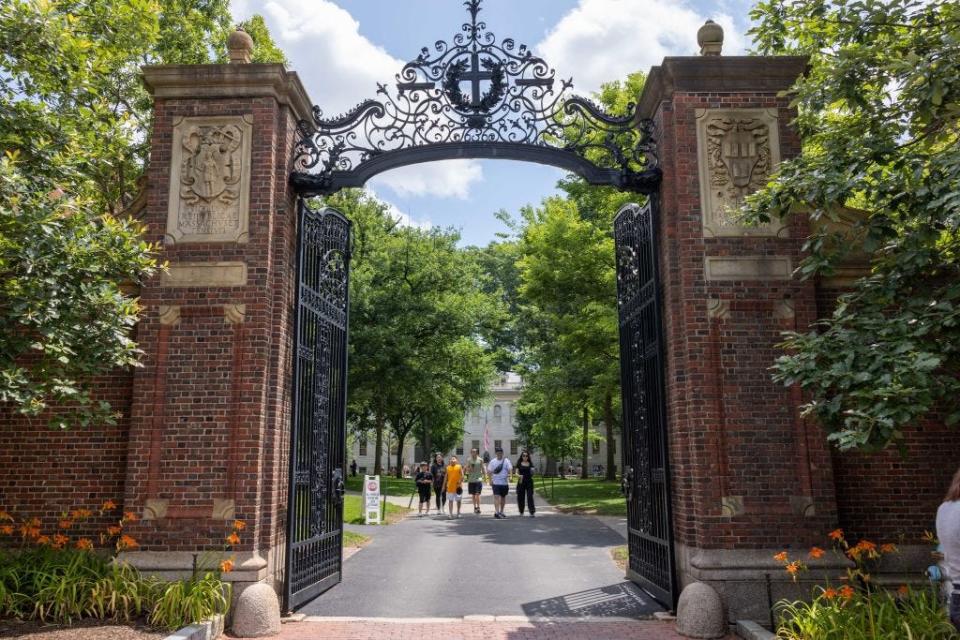
Harvard was founded in 1636. Its first Black student, Richard Theodore Greener, graduated in 1870, but Harvard admitted fewer than 12 Black undergraduates each year up until the 1970s, according to The Harvard Crimson.
The Harvard Annex, later known as Radcliffe College, was founded as a sister school for women in 1879. Radcliffe students began receiving Harvard degrees in 1963. Harvard and Radcliffe combined their admissions in 1975, and Radcliffe was fully absorbed into Harvard in 1999.
"Today, the Supreme Court delivered its decision in Students for Fair Admissions v. President and Fellows of Harvard College. The Court held that Harvard College's admissions system does not comply with the principles of the equal protection clause embodied in Title VI of the Civil Rights Act," Harvard University President Lawrence S. Bacow said in a statement on Thursday. "The Court also ruled that colleges and universities may consider in admissions decisions 'an applicant's discussion of how race affected his or her life, be it through discrimination, inspiration, or otherwise.' We will certainly comply with the Court's decision."
The first students of color at Brown graduated in 1877. The first women enrolled in 1891.
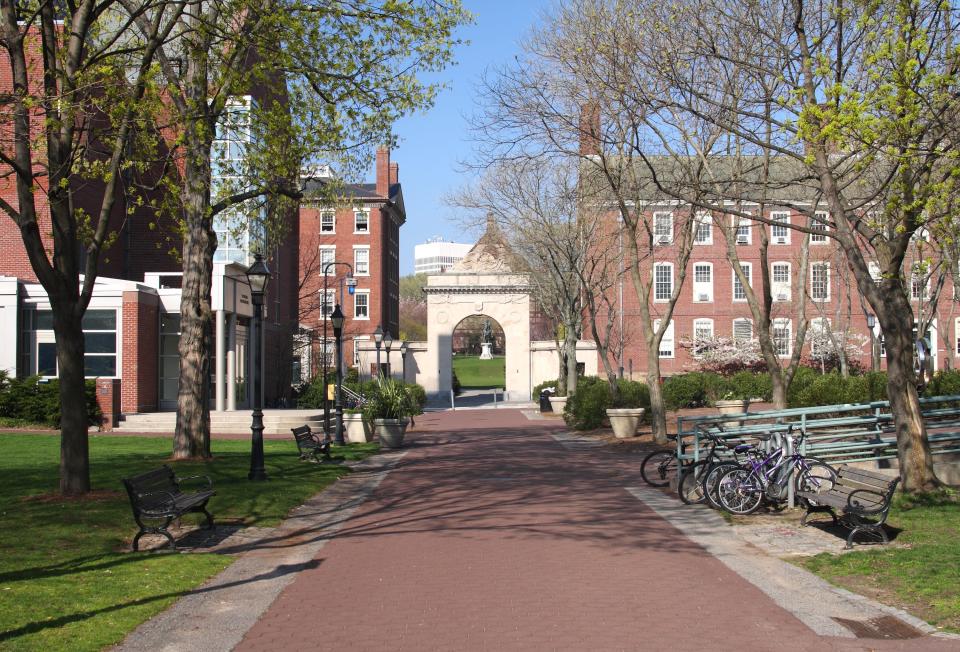
Inman Page and George Washington Milford were the first African-American graduates of Brown in 1877. Page went on to serve as the president of four different colleges.
Mary Emma Woolley and Anne Tillinghast Weeden were Brown's first female graduates, earning their degrees in 1894.
"Given Brown's long history of support for affirmative action in admissions, I am deeply disappointed in the Supreme Court ruling that was issued earlier today, which has upended decades of precedent," Brown's president, Christina H. Paxson, said in a statement.
The statement continued: "As we analyze the decisions, I want to underscore that Brown is and will remain firmly committed to advancing the diversity that is central to achieving the highest standards of academic excellence and preparing our students to grow and lead in a complex world."
In 1879, the first Black students enrolled at the University of Pennsylvania. It became fully coed in 1974.
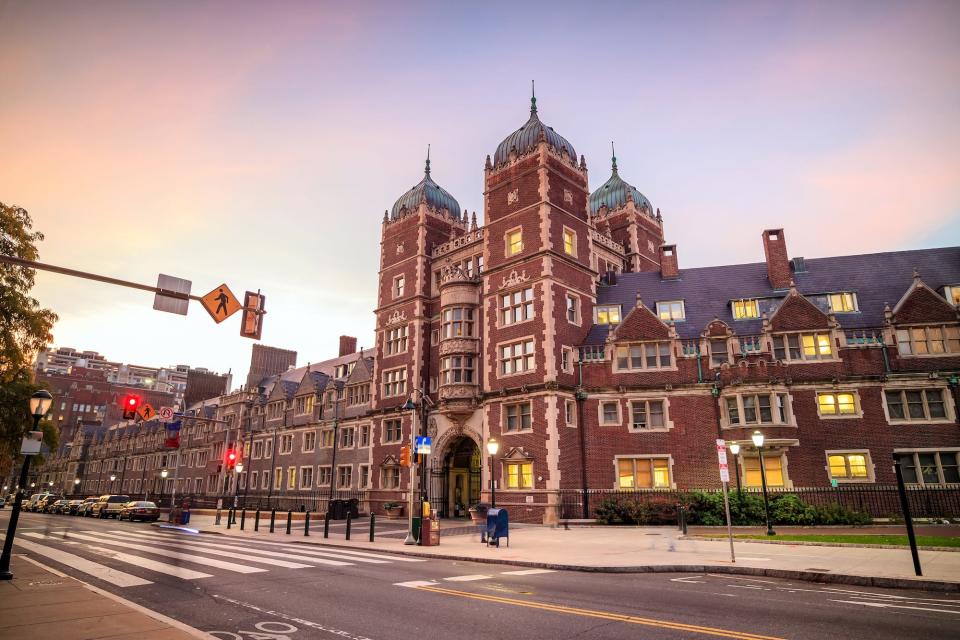
William Adger, James Brister, and Nathan Mossell became Penn's first Black students in 1879. That same year, the college's first Japanese student, Tosni Imadate, graduated as well.
Penn established a separate College of Liberal Arts for Women in 1933, which fully merged with the School of Arts and Sciences in 1974.
Following the Supreme Court's ruling, Penn's president, Liz Magill, and provost, John L. Jackson, Jr., said in a statement, "This decision will require changes in our admissions practices. But our values and beliefs will not change. Bringing together individuals who have wide-ranging experiences that inform their approach to their time at Penn is fundamental to excellent teaching, learning, and research. In full compliance with the Supreme Court's decision, we will seek ways to admit individual students who will contribute to the kind of exceptional community that is essential to Penn's educational mission."
Princeton's first Black students, who graduated in 1947, were part of a Naval Training School. Women could enroll at Princeton beginning in 1969.
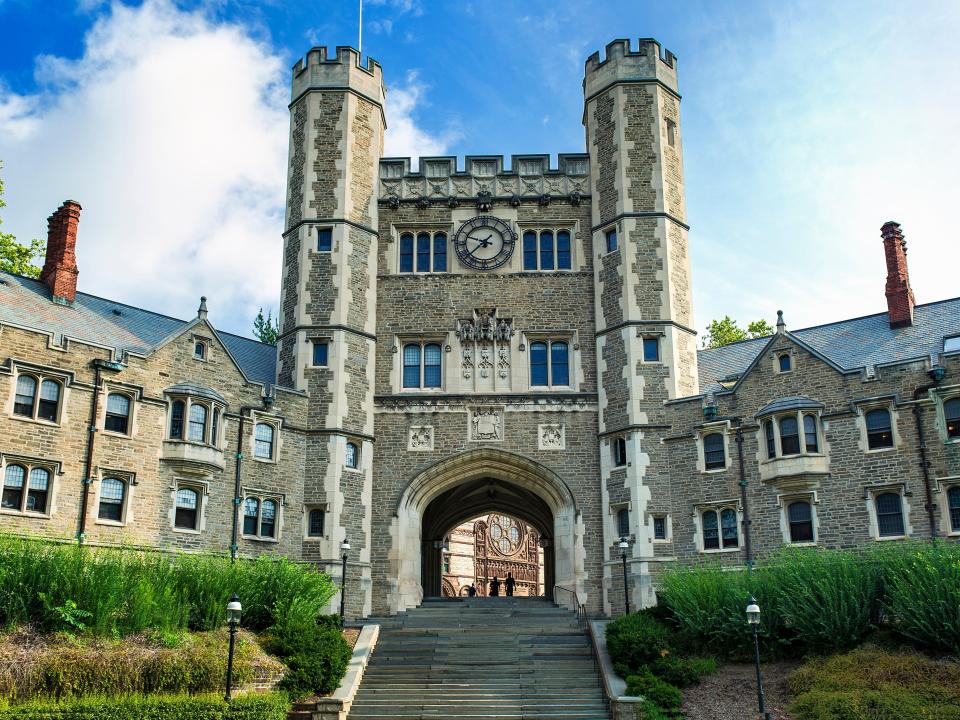
Four Black students earned Princeton degrees through the US Navy's V-12 program. The first Black student during peacetime at Princeton was Joseph Ralph Moss, who enrolled in 1947.
Princeton's board voted to admit women for a "better balance of social and intellectual life" in 1969, but it wasn't until 2004 that there were an equal number of men and women on campus.
"This morning's opinion is unwelcome and disappointing, but it is not unexpected," Princeton President Christopher L. Eisgruber said in a statement following the Supreme Court's ruling. "Princeton has been preparing for this possibility with assistance and advice from legal counsel. While today's decision will make our work more difficult, we will work vigorously to preserve — and, indeed, grow — the diversity of our community while fully respecting the law as announced today."
Yale implemented affirmative action in the 1960s, admitting its first group of Black students in 1964 and women in 1969.
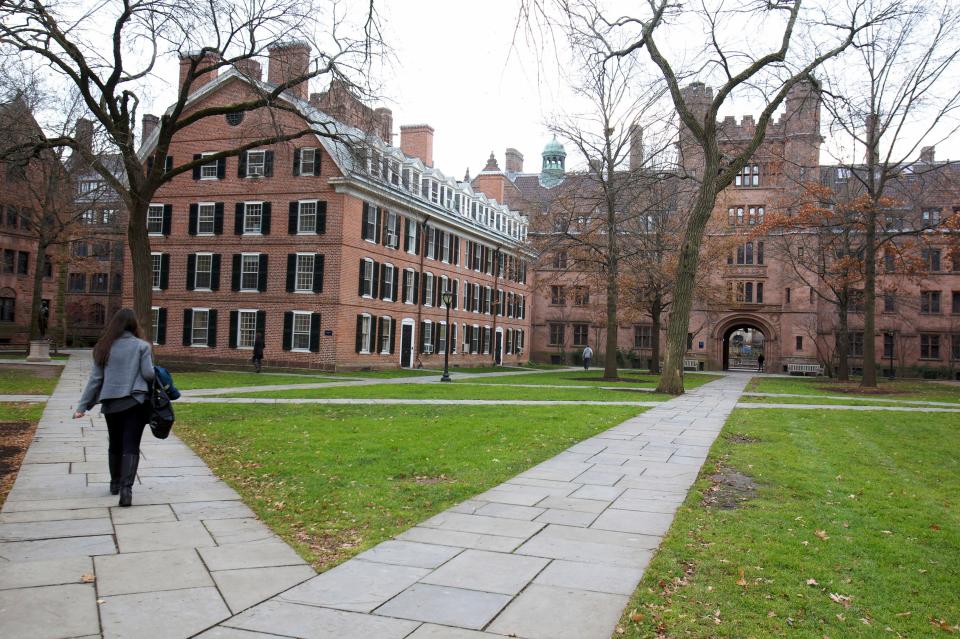
Yale's first-ever Black student was James Pennington, a pastor who escaped from slavery and attended Yale's Divinity School in 1837. However, he was not allowed to officially register for classes, use the library, earn a degree, or even speak in class. The university named a classroom after him in 2016 in a ceremony honoring his legacy, USA Today reported.
Peter Salovey, the president of Yale, wrote in a statement that he was "deeply troubled" by the Supreme Court's ruling on affirmative action.
"Beyond Yale, and as evidenced by the broad range of voices that joined Yale in submitting amicus briefs in the case, as a nation and global society, we are strengthened by a higher education system that admits and graduates into the workforce diverse and excellent cohorts of students," he wrote. "To the extent today's decisions impede progress in this regard, I believe they have done the nation a disservice."
Columbia's first known Black student graduated in 1906. The college didn't admit women until 1983, making it the last Ivy to do so.
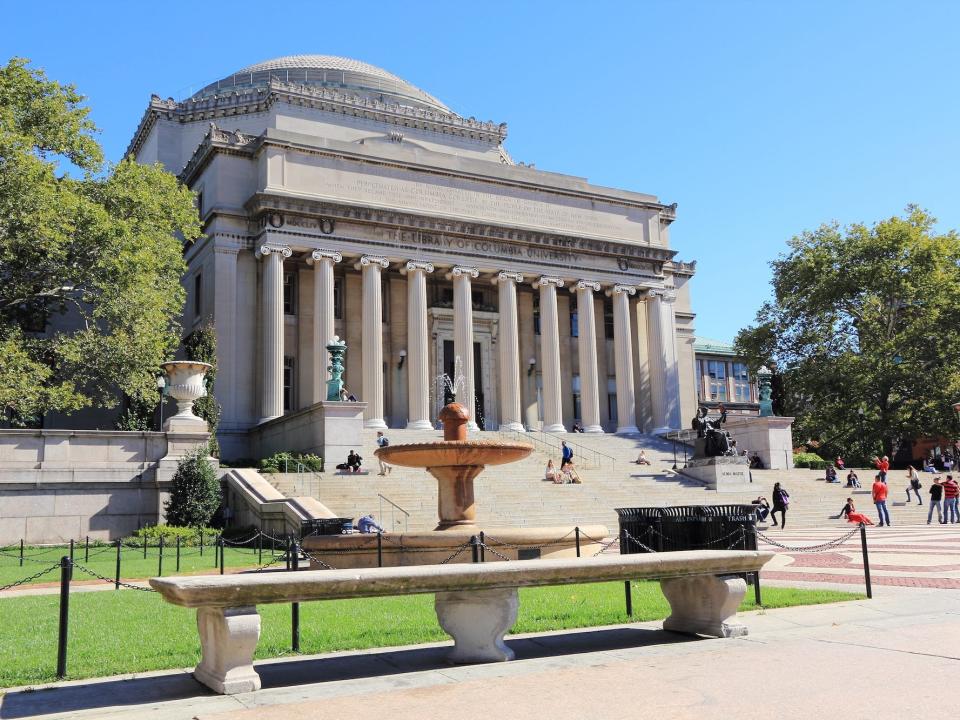
Pixley ka Isaka Seme was born in South Africa and graduated from Columbia in 1906. An award-winning orator, he went on to found the African National Congress political party eventually led by Nelson Mandela.
The college began actively recruiting and admitting Black students following student protests in the late 1960s, according to the student publication The Current.
Barnard College, founded by Columbia president F.A.P. Barnard in 1889, served as the women's college of Columbia University before it began admitting women in 1983. The first coeducational class graduated in 1987 with women serving as valedictorian, salutatorian, and class president.
"We are reviewing the Supreme Court's decision and will refrain from commenting further until we fully understand its implications," a Columbia University spokesperson said in a statement following the Supreme Court's decision. "As we prepare to comply with the law, our commitment to our values is unwavering. Diversity is a positive force across every dimension of Columbia, and we can and must find a durable and meaningful path to preserve it."
Read the original article on Business Insider

